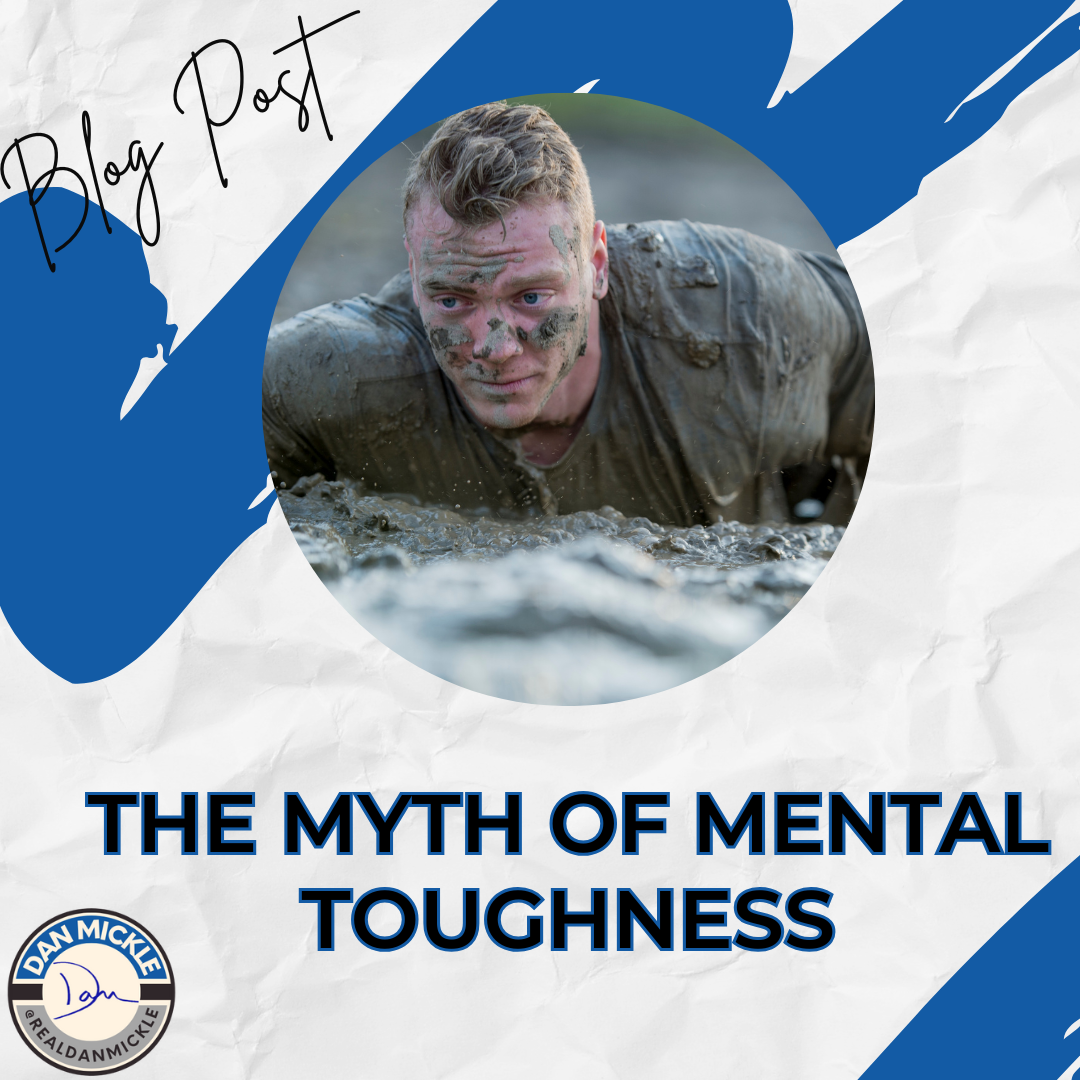The Myth of “Mental Toughness”: Why “Just Be Tougher” Doesn’t Work
TL;DR
Telling athletes to “just be tougher” doesn’t build mental skills; it just piles on shame and confusion. Real mental strength is taught through self-awareness, coping tools, and support, not by demanding stoic perfection. Let’s trade outdated scripts for actionable guidance that actually helps athletes grow.
The Myth of “Mental Toughness”: Why “Just Be Tougher” Doesn’t Work
There’s a moment in almost every game where you hear it from the sidelines or, let’s be honest, maybe even yell it yourself: “Be tougher!” It’s a phrase so common it’s practically stitched into every coach’s whistle lanyard. But what if the entire concept of “mental toughness” is, well, a bit of a myth?
Let’s rewind. The first time I was told to “be tougher,” I was in middle school, wearing knee-high tube socks and a look of absolute confusion. I didn’t know what it meant, but I was pretty sure it was bad news for me. I couldn’t just flip a switch and become an unshakeable block of granite. What I could do was panic, tighten up, and worry I’d never be “tough enough.”
Sound familiar?
Here’s the truth: telling athletes to “be tougher” without showing them how is about as helpful as telling someone to swim by yelling “don’t drown” from the shore. And yet, this advice has survived generations. Coaches, parents, and even teammates rely on it like duct tape for every mental crack.
But mental performance isn’t duct tape. It’s a skill set, one built through deliberate practice, just like physical training. If you’re looking for a deeper dive on turning setbacks into progress, you might like my Benefits of Losing podcast, where we unpack why failure can be the best teacher.
Why the “Toughness” Script Fails
When athletes hear “just toughen up,” it sends one clear message: their struggles are a personal flaw. That if they were better, they wouldn’t feel nervous, sad, or scared. The reality? Those emotions are part of being human. If you’ve ever felt anxiety on the verge of a big point or match, congratulations…You’re alive.
The real kicker is that mental “toughness” isn’t something you’re born with. It’s a messy, evolving toolkit built through practice, support, and sometimes spectacular failure. When we reduce it to brute stoicism, we teach kids to hide their struggles, not work through them. Instead, we need to fix our approach, as I explored in Fix the Dish, Not the Kids, changing the environment and our methods can make all the difference.
What Real Mental Strength Looks Like
I’d bet my last broken clipboard that the athletes who truly perform under pressure aren’t tougher in the traditional sense. They’re the ones who learned how to:
-
Stay present when their thoughts scream “you’re going to mess up.”
-
Bounce back from mistakes instead of spiraling.
-
Accept fear or doubt without letting it define them.
These are skills, not character traits. And guess what? Skills can be taught, refined, and improved over time. The American Psychological Association’s guide on developing resilience offers fantastic science-backed strategies anyone can start practicing today.
“Suck It Up” Culture is a Dinosaur
Somewhere along the way, sports culture twisted resilience into silence. We praise the athlete who plays through pain but ignore the one who admits they’re struggling mentally. We value stoicism over self-awareness.
It’s the same culture that says, “Rub some dirt on it,” when what a player really needs is space to feel frustrated, reset, and learn. We wouldn’t dream of telling someone with a sprained ankle to just “walk it off” in the name of toughness. So why do we do it with emotions?
And for those coaching or parenting neurodivergent athletes, this outdated mindset can be even more damaging. The CHADD organization’s resources for supporting neurodivergent youth are a great starting point for building more inclusive, individualized approaches.
Replacing the Myth with Tools
So what should we tell athletes instead of “be tougher”? How about:
-
“Breathe. Let’s figure out what you need right now.”
-
“It’s okay to be nervous; here’s how we work through it.”
-
“Mistakes happen. Let’s unpack what you learned.”
Coaching mental performance is about helping athletes navigate storms, not pretending the clouds don’t exist. It’s about teaching concrete strategies for focus, confidence, and composure — not barking orders for a magical transformation.
The Best Kind of Toughness
Real mental strength is quiet, sometimes wobbly, and always learned. It’s not the chest-thumping bravado we see on highlight reels, but the quiet choice to get back up, ask for help, and try again, even when your confidence is shaking like a leaf.
So next time you’re tempted to shout “just be tougher,” pause. Remember the confusion in that middle schooler’s eyes. And instead of demanding unteachable grit, offer guidance that builds it.
Because in the end, the strongest athletes aren’t the ones who never falter, they’re the ones who learn how to keep going when they do.
Key Takeaways
-
“Just be tougher” doesn’t teach skills; it shames emotions.
-
True mental strength is built through self-awareness, coping strategies, and support.
-
Coaches and parents can replace outdated toughness scripts with actionable tools that actually help athletes grow.
Until next time: keep growing, keep learning, and don’t fall for the myth. #DontSuck


